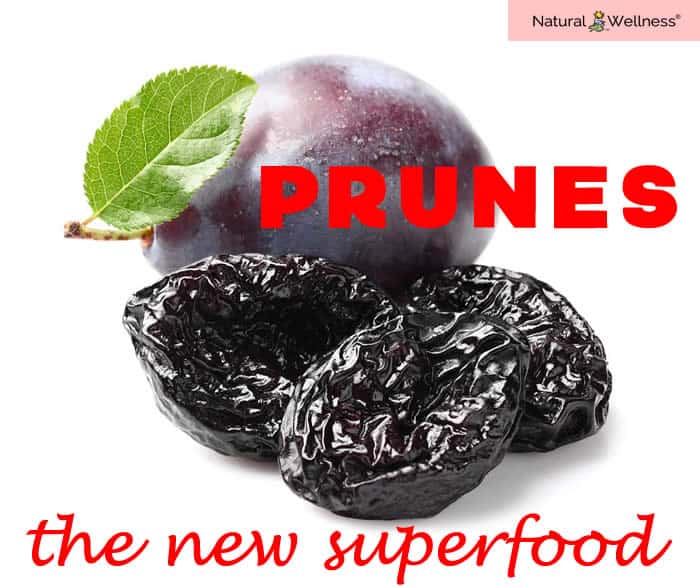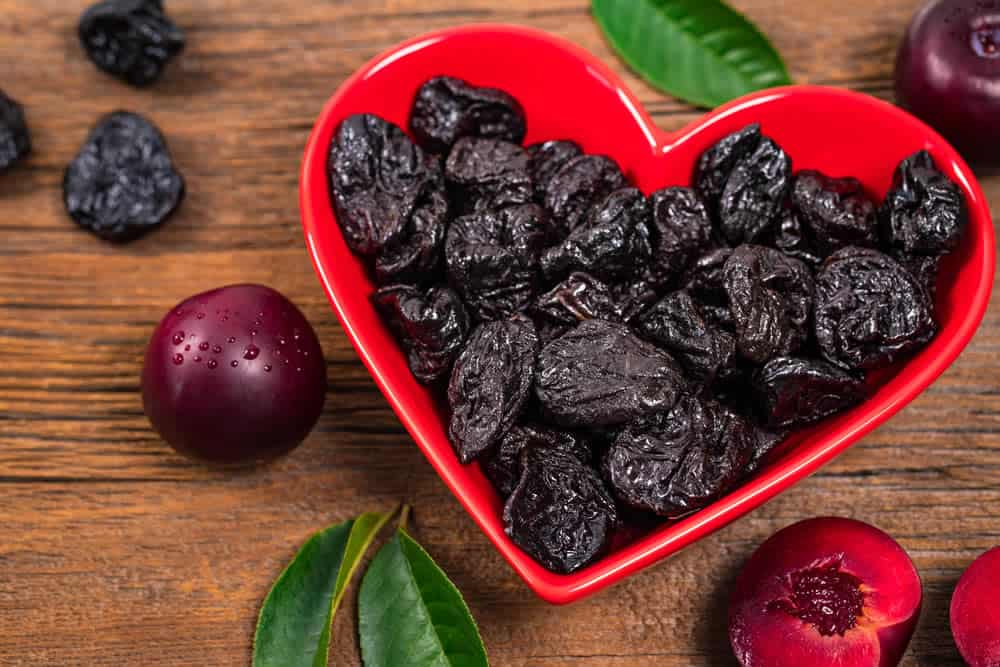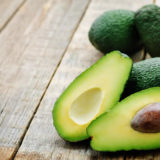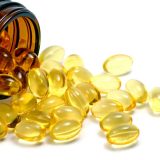

Prunes are basically plums that have been dried in the sun without allowing any fermentation to occur. But don’t let their wrinkles fool you. These superfoods are rich in dietary fiber and packed with antioxidants of the phenolic variety.
According to Bloomberg News, prunes are ready to make a serious push back onto shelves (1).
The California Prune Board aims to rebrand prunes using their ability to bolster bone and muscle growth, heart health, and are offering suggestions to food producers on how to integrate prunes as a natural sugar replacement in recipes (1).
As we brace ourselves to start seeing a lot more prunes and prune products around, let’s brush up on their natural health benefits, past and present, looking closely at the mechanisms behind them, and the best ways to get the most out of your prunes.
The Natural Health Benefits of Prunes
While the commodities market salivates over prunes’ future earnings, it’s still worth noting that prunes and plums are a great source of dietary fiber. They can seriously help constipation, aid digestion and be an effective way to deal with weight loss and management.
Their high sorbitol count and dietary fiber, which we’ll get into below, has solidified prunes as the time-honored diuretic.
But beyond the known reputation, prunes also have a wide swath of health benefits, both dietary and medicinal.
Prunes for Your Liver, Heart and More

A 2010 study published in the Pakistan Journal of Pharmaceutical Sciences found, “alteration in liver function by use of prunes may have clinical relevance in appropriate cases and prunes might prove beneficial in hepatic disease (5).”
Other health benefits of prunes include:
- diabetes management
- and promoting cardiovascular health (6).
Due to the high phenolic content, they’re also thought to help prevent against heart disease and cancer (6). They’re small, but they pack quite the punch.
The Role of Prunes on Weight Management
The reason behind prunes’ success in weight management could have a lot to do with its chemical makeup and how it interacts with our bodies.
Researchers at the University of Liverpool conducted a study evaluating prunes’ ability to deal with weight loss. After 12 weeks of a 100g daily dose of prunes, the experimental group experienced significant weight loss compared to the control group (3).
Basically, those eating prunes lost more weight than the group that wasn’t, and they also experienced longer periods of feeling full and satisfied. This definitely indicates prunes’ potential in weight management and dieting regimes.
If you are looking to prunes to help with weight management but don’t like the taste of them or can’t get fresh prunes in your area, a great alternative may be taking probiotics, such as Natural Wellness’s Ultra Probiotic Formula. According to Healthline.com, “Studies have found that certain strains of the Lactobacillus family can help you lose weight and belly fat.”
Prunes Build Strong Bones

In a wide review of over 24 separate studies conducted up through 2017, Nutrients magazine found prunes effective at promoting bone density and bone health due to being so nutrient-dense and high in phenolic antioxidants (4).
In fact, they go on to say that “epidemiological studies show that phenolic compounds may have a stronger association with bone than general fruit and vegetable consumption,” making plums and prunes somewhat special in that sense (4).
More specifically, researchers say that “dried plums and/or their extracts enhance bone formation and inhibit bone resorption through their actions on cell signaling pathways that influence osteoblast and osteoclast differentiation.”
To put it briefly, prunes help build bones and keep them strong. Anyone suffering from osteoporosis – take note.
Digestion Mechanism
When it comes to digestion, prunes and plums are simply very high in dietary fiber as well as a compound called sorbitol. As sorbitol runs through our body undigested, it pulls water to the gut to bolster stool and stimulate bowel movements.
Sorbitol is commonly considered an effective laxative that is safe to use for most people (4).
How Many Prunes Should I Be Eating?
Roughly 3 prunes is equal to a 30g single-serving portion containing 51 calories, and that’s probably all that most people need per day.
However, if you really need some help in the digestion department, a dose in the ballpark of 60-100g worth of prunes may get you all the benefits in a totally safe and natural way. That’s about 6-9 whole prunes, and this should get your system moving in the direction of a bowel movement rather quickly.
The only downside to eating that much means possibly inducing a bit of gas, so be warned, and warn those close to you.
If the taste of prunes makes hitting those recommended doses difficult, you may react better to taking prunes in its liquid form, also known as prune juice. While you may be forgoing the dietary fiber, one-half cup of prune juice should do it for most adults, with the dose for children being far less at around 1oz per day.
If prune juice is unpalatable or not available to you, you may aim to use a more traditional natural colon cleanse instead. Natural Wellness’s Colon Cleanser helps support healthy bowel and intestinal function as well as strengthen the colon muscles and soothe the lining of the intestinal tract.
Conclusion
Generally, prunes are natural, healthy and safe in doses of even up to 140g per day. Just know that that amount will induce some serious digestion progress within less than a day’s time.
We recommend starting slow, introducing one serving of prunes or plums per day in conjunction with other natural supplements in order to provide whatever area of your body you’re trying to address in a well-rounded treatment regime.





